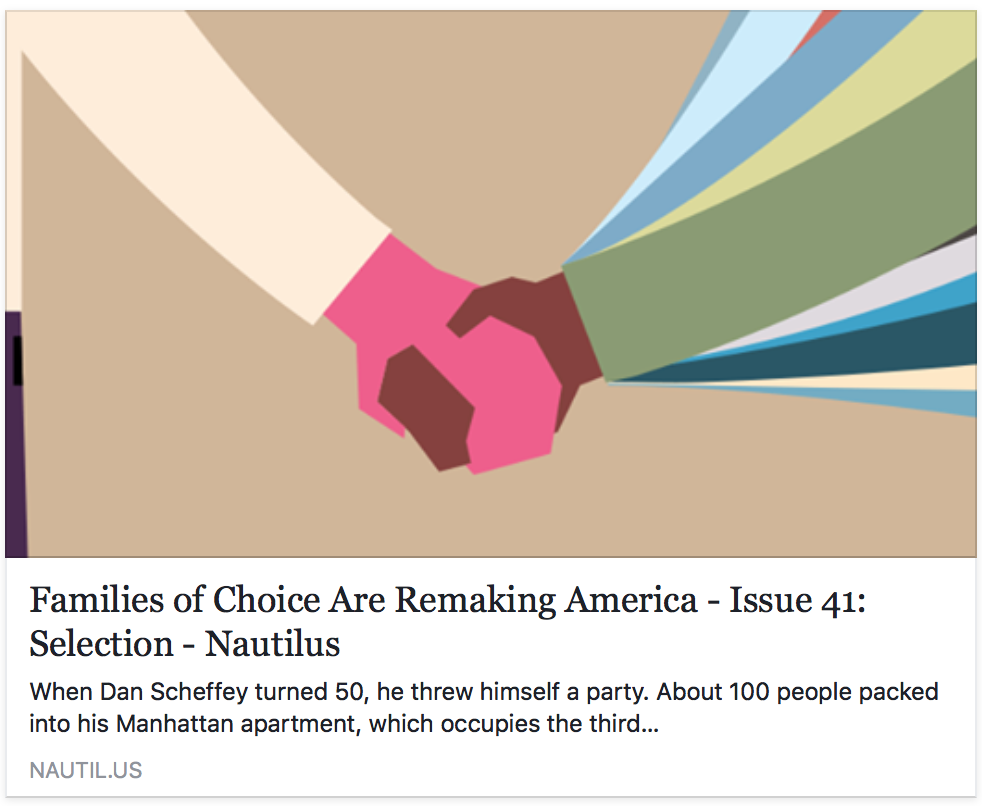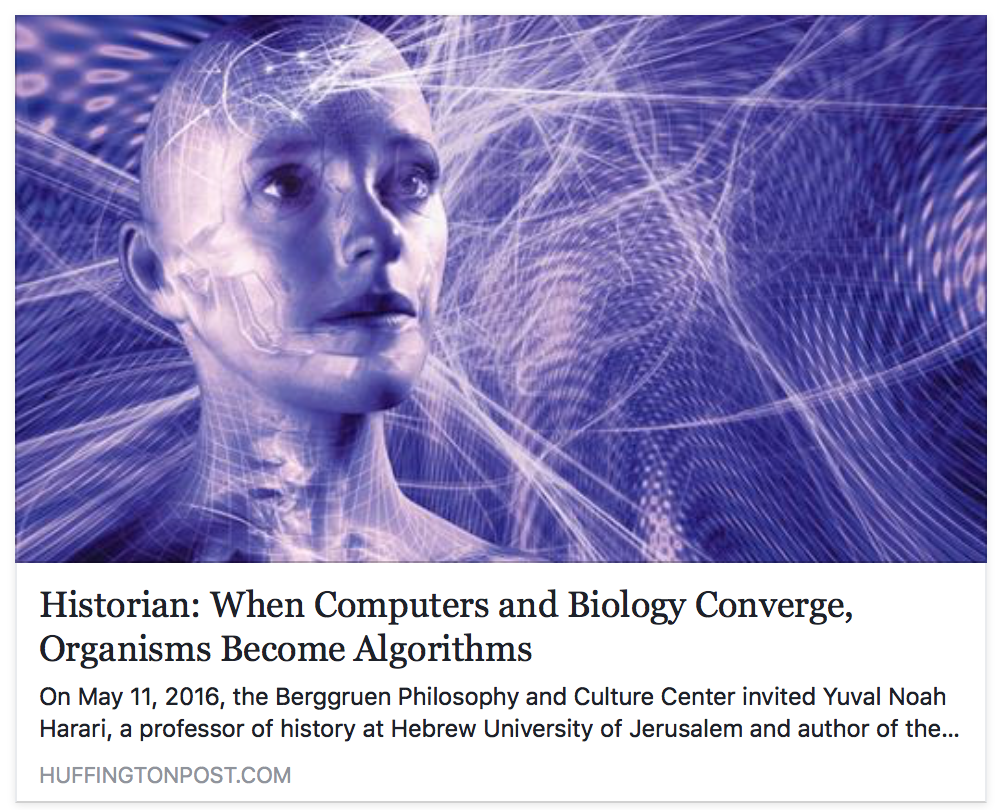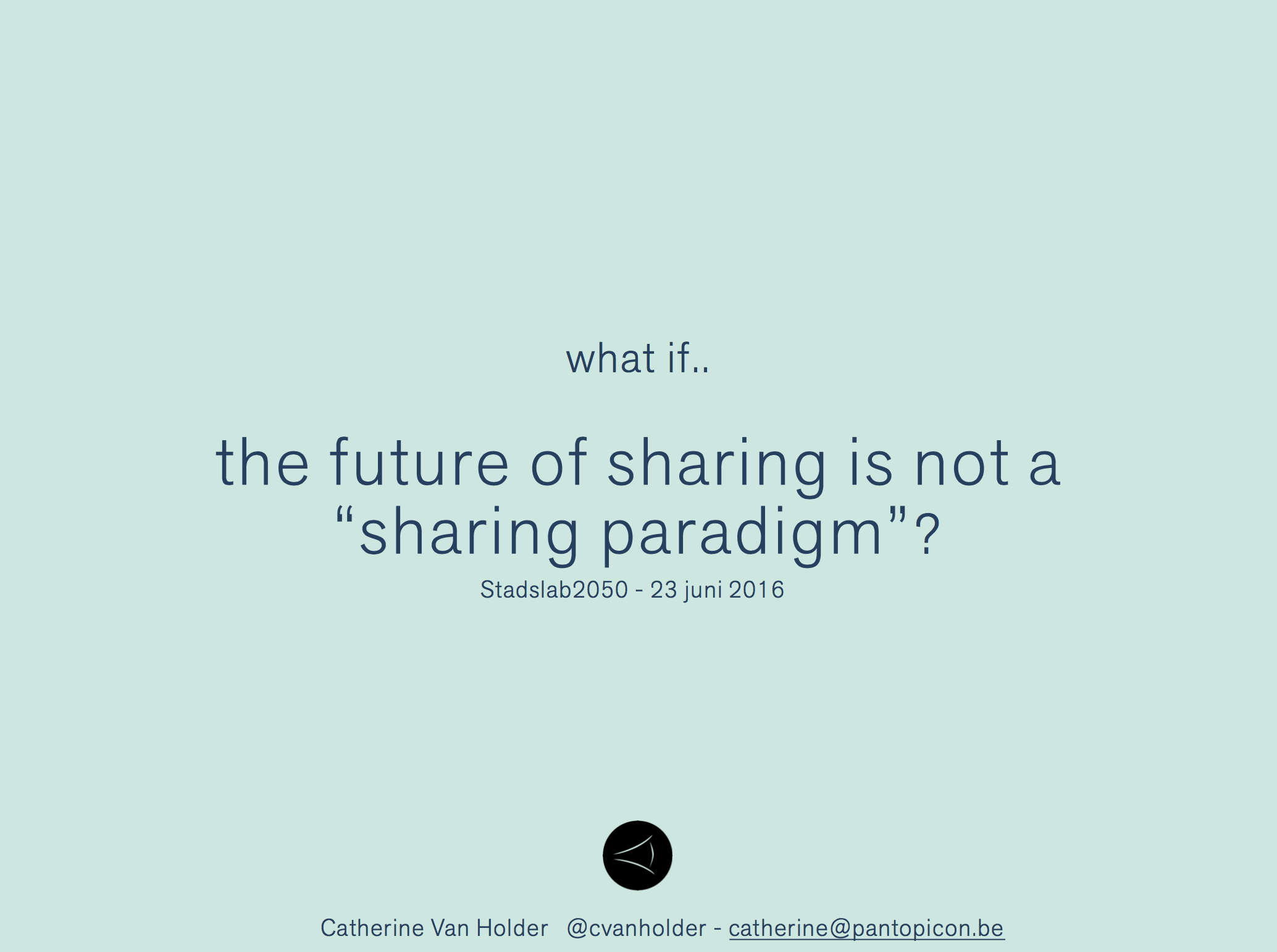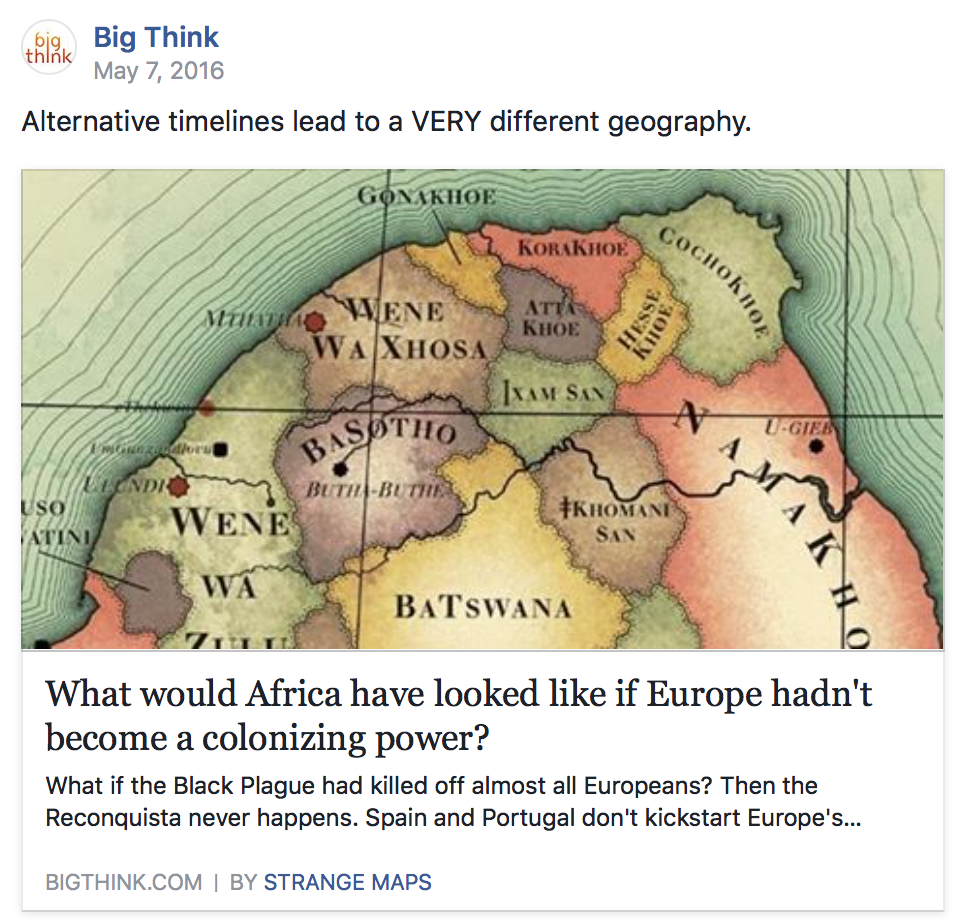After keeping fingers crossed while our submission was being passed on to the review board.. Daniel & I were pleased to receive confirmation of publication this morning. "Great news! The committee overwhelming voted in favor. Our goal date for publishing your project is mid February." — at Pantopicon.
Predictive World /
Interesting big data application..
"You are a philosophical innovator. (...) To you, life is an ongoing inquiry into the mysteries of the universe.(...) People with your Facebook likes are intellectually curious and appreciative of what they consider beautiful, no matter what others think. Your imagination is vivid and makes you more creative than many others."
Future Of (Decentralised) Governance /
Care to join me aan de ontwerptafel over p2p en governance, all welcome tijdens het Open Lab van Stadslab2050 volgende week dinsdag!
New Brave Families /
Information vs Wisdom /
Designing The Future /
from this weekend's #utopiabydesign to tomorrow's #designingforsustainability, from #visitor to #mentor..
Utopia by Design /
A sound installation for the hearing impaired, beautiful work from Sharona Merlin — at London Design Biennale.
Humanist Among Machines /
Lezing voorbereiden voor bij de ingenieurs morgen..
beginnen bij het begin, wat historisch besef is nooit slecht wanneer je het over de toekomst hebt..
"De opleiding is historisch ontsproten uit die van de Belgische technisch ingenieurs die gecreëerd werd vanwege gestelde noden bij de industriële revolutie."
..en er dan een filosofische invalshoek aan toevoegen — at KU Leuven
Future of Food and The City /
On the importance of narratives /
Integral Perspectives /
Futures of Political Systems /
The Wild World of Biohacking /
The Future Of Sharing /
Neo-nomads /
Nieuwe nomaden blijven een hot topic blijkbaar.. #2016 #weekendknack #nomadznu
Why Science Needs To Break The Spell Of Reductive Materialism /
Futures Of Food & The City /
There's a first for everything.. #curator #futures #design — at Pantopicon.
Alternative Histories /
Bureau Europa /
On Tuesday 26th of April, Catherine will lecture at Bureau Europa, platform for architecture and design. The lecture is programmed as part of Intervention Design, an academic minor of the Maastricht Academy of Media Design & Technology. In this minor lead by Theo Ploeg, students are tasked with translating media theory and their personal value into design praxis.
(update via Pantopicon news section)
Once and future sins /
"At the moment, we lock up extraordinarily large numbers of people. In 100 years, no one will believe we have an absolutely free will and therefore that anyone chooses to be a criminal. Indeed, there is evidence that we lock up those who are least responsible for their decisions – those with the least capacity for self-control, those who suffer from addictions, or who are mentally ill.
We will not find it easy to decide whom to treat, how radically and when; nor to extend understanding and sympathy to those who have committed the worst of crimes. But our great-grandchildren will be appalled at how we locked up millions of people when we should instead have been helping them."




















